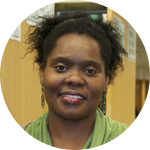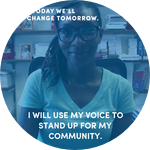About This Project
Most recently, the White House Council on Women and Girls held a forum on advancing equity for women and girls of color. However, despite recognition of girls of color, little research has focused on how racial inequalities and injustice impact the development of girls of color, in particular, Black girls. The study contributes to this important work by examining the impact of being a witness and/or victim of negative racial experiences and the impact on Black girls’ development.
Ask the Scientists
Join The DiscussionWhat is the context of this research?
Racial discrimination experiences are common for children and adolescents of color. Black adolescents are forced to cope with racial discrimination and tensions, particularly as they age into the teenage years (Seaton et al. 2014). However, to date, this work has primarily focused on the experiences of Black adolescent boys. For instance, several studies note the deleterious impact of racial stigma experiences on the psychosocial adjustment outcomes among Black males (e.g., Bennett et al. 2004; Bridges, 2010; Burt, Simons, & Gibbons, 2012; Franklin & Boyd-Franklin, 2000; Kogan et al. 2015; Neblett et al. 2009, Nyborg & Curry, 2003; Wakefield & Hudley, 2005) in comparison to Black females (Masko, 2005; Sales et al. 2015).
What is the significance of this project?
Despite Black boys being racially targeted at higher rates and racially profiled, there is little research that has focused on Black girls’ experiences with racism. As a result, it is not clear what other coping strategies or protective factors assist Black girls. This study contributes to this important work by examining the negative impact of racial stigma on Black girls’ well-being. In the aftermath of the Micheal Brown shooting, racial climate is of importance and Black girls' experiences and feelings are often overlooked as several initiatives have been geared toward boys and men of color (e.g., My Brother’s Keeper White House Initiative). Thus, focusing on the experiences of Black girls is imperative.
What are the goals of the project?
The goals of the project is understand the racial and gendered experiences of Black girls in surrounding areas of Ferguson, Missouri. More specifically, I am interested in understanding adolescent girls identities, social support systems, and experiences with racism –post Ferguson, Missouri and the impact on their socio-emotional well-being. I will recruit approximately 100 Black girls and interview and survey them on their experiences as it pertains to experiences with racism, support, and coping mechanisms. The start date will be August 2017. This start date provides time for recruiting and obtaining parental and university permission. Our goal is to create a report and distribute to the surrounding areas and to the Ferguson Task Force.
Budget
During the study, a graduate RA with an interest in Black girls’ development and socio-emotional well-being will be recruited. The RA will assist the PI (Sheretta Butler-Barnes) with the codebooks, communications, report writing, data collection, qualitative interviews and data entry and analysis, and administering test. Food will be provided for the adolescent girls during the interview and survey sessions. Additionally, adolescent girls participating in the interviews and completing the measures will receive $20. Four Olympus Tape Recorders with USB will be ordered for the semi-structured interviews at $100 each. Approximately 100 Black adolescent girls in the surrounding areas of Ferguson, Missouri will be recruited to participate in this study.
Endorsed by
Meet the Team
Sheretta T. Butler-Barnes, PhD
Sheretta T. Butler-Barnes is an assistant professor at the George Warren Brown School of Social Work. Before coming to Brown, Dr. Butler-Barnes was a National Science Foundation Postdoctoral Fellow at the University of Michigan’s School of Education affiliated with the Center for the Study of Black Youth in Context. During her fellowship, she conducted research on how individual-level factors connected to Black youths’ cultural backgrounds (e.g., internal assets such as racial identity beliefs, religiosity) and ecological risk and resources (community violence, family and peer support) influence their achievement and socio-emotional well-being outcomes.
Dr. Butler-Barnes earned her doctorate in developmental psychology from Wayne State University. She also holds a Master of Arts in psychology from Wayne State University and a Bachelor of Science from Michigan State University.
Lab Notes
Nothing posted yet.
Project Backers
- 0Backers
- 0%Funded
- $0Total Donations
- $0Average Donation

